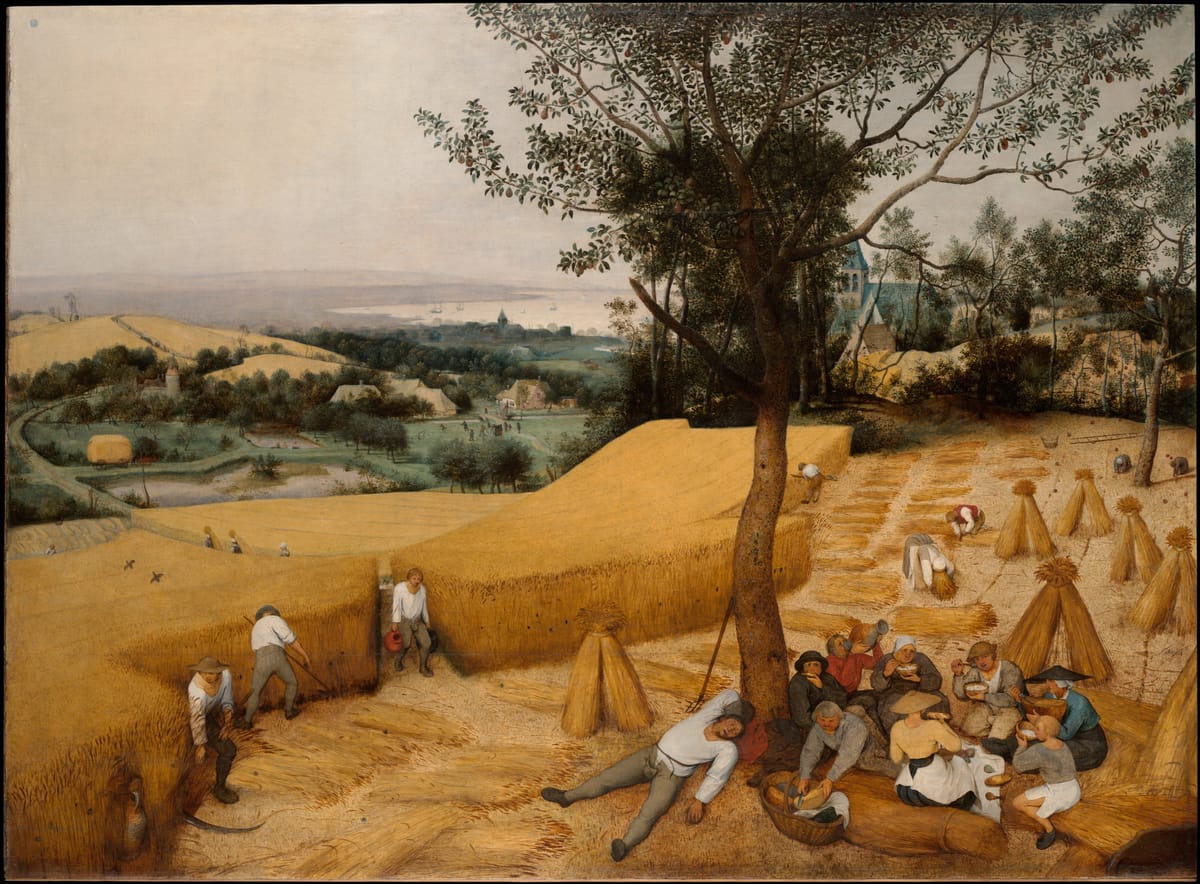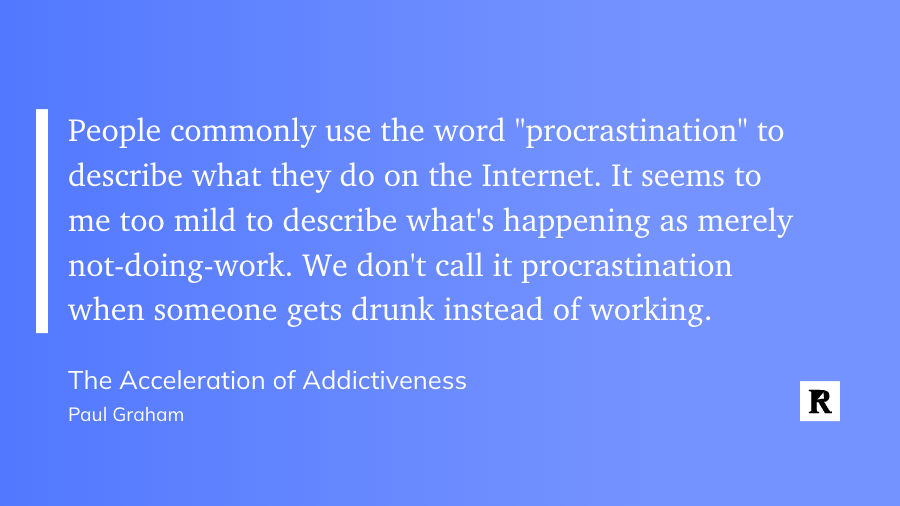📚 Oliver Burkeman: 4000 Weeks — Time Management for Mortals

This is not a typical time management book. It doesn't offer quick fixes, hacks, or techniques to squeeze more out of your day. Contrary to the traditional time management books that focus on doing more in less time, Burkeman urges us to recognize our limited lifespan instead, the 80 years for an average adult, and focus on deliberately choosing how we find meaningful activities for these mere 4000 weeks.
As someone who has always experienced the constant internal pressure to be more productive, this book offered me a refreshing perspective and started to change my relationship with time.
💭 Distorted Reality and the Role of Technology
Starting from a distance, Burkeman argues that the misallocation of our limited time is largely the result of our fragmented attention, which can be traced back to a desire for constant stimulation. This is fed by the instant gratifications and non-stop distractions by social media platforms, and similar applications engineered to keep us constantly engaged. The minor interruptions command our focus, making it increasingly difficult to concentrate on substantive tasks, developing an increased feeling of inefficiency and stress when recognizing the negative effect on our productivity. This anxiety is often alleviated by escaping responsibilities for just another minute of short video entertainment, closing the circle of procrastination. This reminds me of a quote from Paul Graham, from 2010(!):

Besides the increased anxiety and the inability to work on anything requiring prolonged focus, this obsession (addiction?) can even lead to a distorted perception of reality, with all its negative consequences. As Burkeman explains:
Because the attention economy is designed to prioritise whatever’s most compelling – instead of whatever’s most true, or most useful – it systematically distorts the picture of the world we carry in our heads at all times. It influences our sense of what matters, what kinds of threats we face, how venal our political opponents are, and thousands of other things – and all these distorted judgements then influence how we allocate our offline time as well. If social media convinces you, for example, that violent crime is a far bigger problem in your city than it really is, you might find yourself walking the streets with unwarranted fear, staying home instead of venturing out, and avoiding interactions with strangers – and voting for a demagogue with a tough-on-crime platform.
🧠 The Psychology of Distraction
The book gets a bit into the psychology of distraction too, adding another aspect to the “instant gratification” one: our tendency to seek relief from discomfort — the discomfort that stems from confronting our limited time. It argues that this is why common strategies like digital detoxes, limited screen time, or muting notifications often don't work by themselves, because they don't address this fundamental discomfort itself, which is inherently tied to the human condition of having finite time. Addressing the symptoms only, ignoring facing the root cause, will inevitably lead to falling back to previous practices.
🌈 Embracing our Limitations
In the end, Burkeman urges readers to give up the hope of ever being fully in control, of meeting limitless demands, or of realizing every ambition, should it be external or internal. Instead, he encourages us to embrace our limitations, to make peace with the fact of not being able to do it all, and to find fulfillment in the experiences our short life offers us.
I find this seemingly somber conclusion liberating: rejecting the pressures of relentless productivity encourages me to acknowledge and embrace my limitations, leading to a healthier relationship with time and a better focus on what I want to spend it with. By accepting I can't do everything, I’m forced to choose what truly matters, leading, counterintuitively, to increased productivity, by being able to make progress on the right things. Understanding that time is finite, I'm also more inclined to find joy in the present rather than postponing having fun for the weekend, a summer vacation, or retirement. Being conscious of how I spend my time and the uncertainty of how much remains of it decreases the pressure of what feels like non-productivity — and allows me also to enjoy rest and leisure without guilt.
💡 Take-aways for an Engineering Leader
OK, so what does this have to do with my Engineering Leadership blog? Well, having a less anxious leader focusing on the most impactful tasks in itself is a big win for the team. But some of the ideas from Oliver Burkeman's book can be applied to engineering teams more directly:
- 🎯 Prioritize ruthlessly: Just like we can't do everything in our personal lives, a software development team can't take on every possible project, feature, and bug fix. Prioritize ruthlessly and focus on what truly matters for your users and your business.
- 💰 Embrace limitations: Acknowledge and embrace the team's limitations not just in terms of time, but other resources too — and use them as motivators. This can lead to clarity, smarter choices about what to work on, and can help prevent frustration about lack of resources, decreasing the chance of burnout.
- 🚫 Minimize distractions: Encourage the team to minimize distractions during focused work times. This could mean turning off unnecessary notifications, designating certain times for deep work only, or establishing team norms around communication.
- 🍕 Advocate for incremental delivery: Encourage your team to deliver work in small, manageable chunks. This approach not only allows for quicker feedback and course correction but also reduces the pressure of having to deliver large pieces of work all at once, which can be overwhelming and could contribute to burnout.
- 🚧 Limit work in progress: In line with embracing limitations and prioritizing ruthlessly, ensure that the team is not overwhelmed with too many tasks at once. By limiting the work in progress and not starting new tasks before finishing ongoing ones, teams can focus on completion discipline. This enhances productivity and reduces the anxiety of having to context-switch between unfinished topics.
- 🎈 Encourage downtime: Recognize the value of rest and leisure time for your team. This can lead to sustainable long-term productivity and can help maintain a healthy team culture.
- 🌈 Cultivate a positive work environment: Foster a culture that values work-life balance and mental health. Recognize and celebrate achievements, and provide support during challenging times.